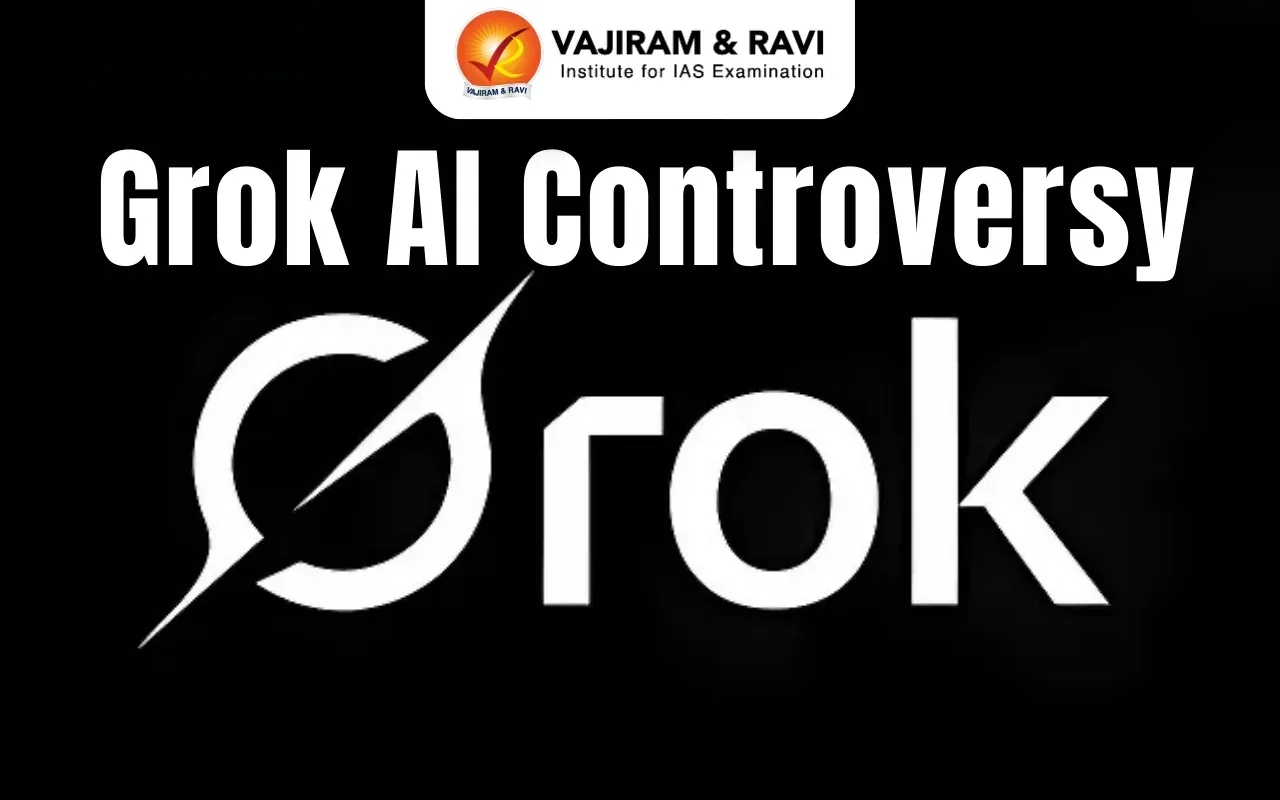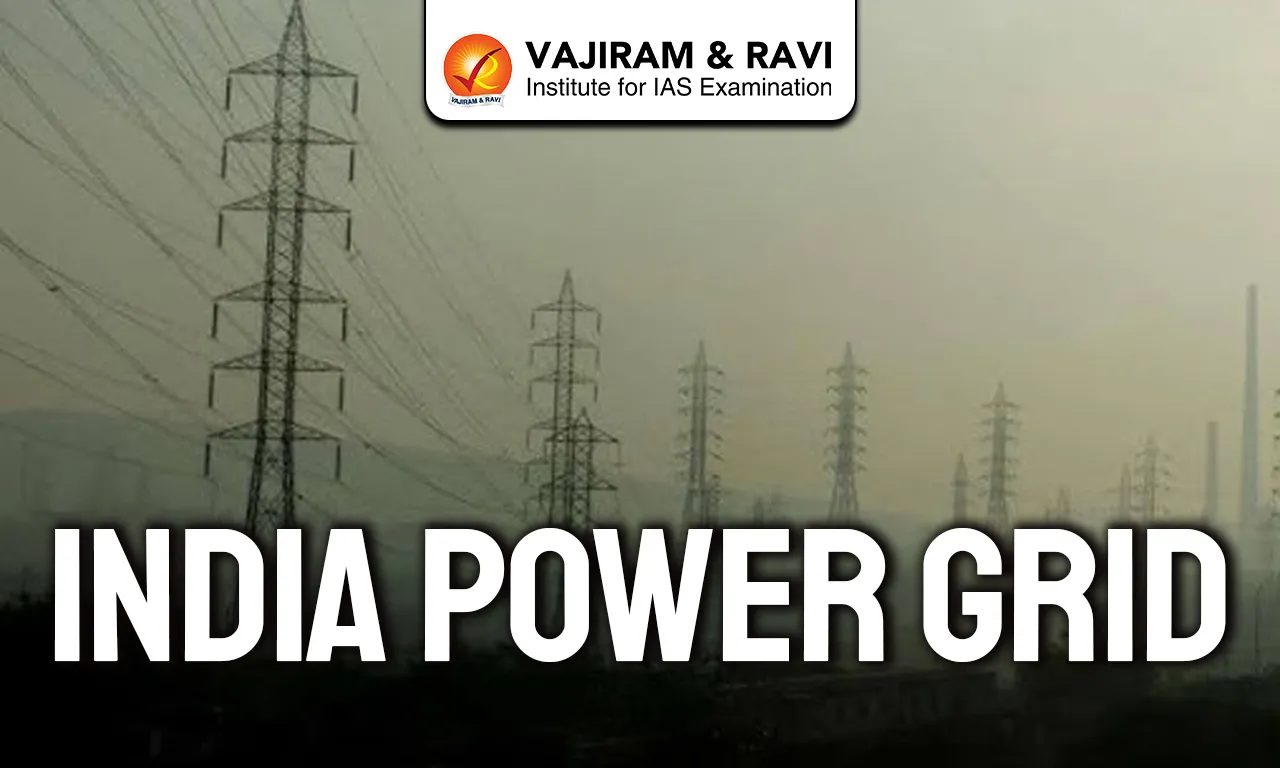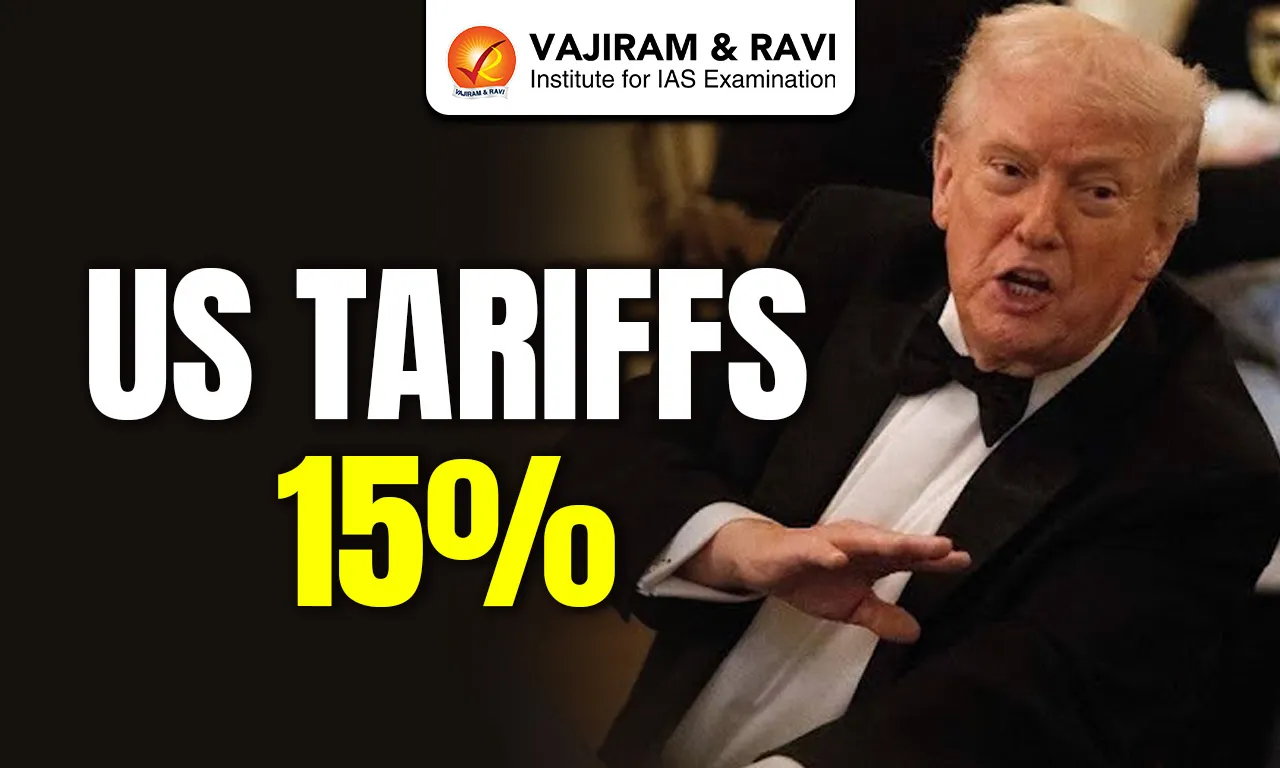What’s in Today’s Article?
- Grok AI Controversy Latest News
- Grok
- Fixing the Responsibility
- Legal Accountability for AI Speech
- Broader AI Regulation Challenges
- Grok AI Controversy FAQs
Grok AI Controversy Latest News
- The Indian government is engaging with Elon Musk’s X over controversial responses generated by its AI chatbot, Grok. The chatbot has produced profane and biased remarks, labeling some conservative users, including Musk, as misinformation spreaders.
- Grok’s responses reflect the attitudes prevalent on the platform, raising concerns about accountability. While Grok is merely a computer code processing fed data, its “intelligence” remains debatable.
- Instances like using a misogynistic Hindi expletive and making inflammatory statements have prompted users to bombard it with more questions, intensifying the debate over AI responsibility.
Grok
- Grok derives its name from the sci-fi novel Stranger in a Strange Land by Robert A. Heinlein, meaning “to fully and profoundly understand something,” as explained by Elon Musk.
Musk’s ‘Anti-Woke’ AI Vision
- Musk positioned Grok as a counter to AI models like ChatGPT and Gemini, claiming they exhibit left-wing bias.
- In an interview, he expressed concerns over AI being trained to be politically correct and instead sought to create a “spicy” and unfiltered AI.
Unique Features of Grok
- Access to Real-Time X Data: Unlike other chatbots, Grok searches and utilizes public posts on X for up-to-date responses.
- Integration with X: Users can tag Grok in their posts to receive direct responses.
- Unhinged Mode: A feature for premium users that may generate inappropriate or offensive content.
Concerns Over Direct Publishing
- Experts highlighted the risk of unchecked AI-generated content spreading on X, which could lead to real-world consequences like misinformation-driven violence.
- He argues that Grok’s integration with X, rather than its output alone, poses the greatest threat.
Fixing the Responsibility
- Internet platforms like X, Meta, and YouTube are protected under safe harbour laws, meaning they are not liable for content posted by users.
- However, whether this protection extends to AI-generated content like Grok’s responses remains a legal grey area.
The Complexity of Holding AI Accountable
- Grok is trained on the open internet, including content from X users.
- This raises the question: if its output is based on human-generated data, can the creators or the platform be held responsible?
- Comparing it to suing the ocean for being wet, legal experts find it difficult to pinpoint accountability.
Free Speech and AI
- In India, freedom of expression is a fundamental right with reasonable restrictions—but it applies to humans, not AI.
- Grok’s responses are determined by its code and dataset, making the concept of “AI free speech” debatable.
Who is Responsible
- The responsibility may lie with xAI (Grok’s creators) and X for allowing unfiltered responses.
- But holding developers accountable is tricky—should blame fall on high-level engineers or low-wage data annotators?
- Governments worldwide are struggling with this unanswered regulatory challenge.
Legal Accountability for AI Speech
- The question of who is responsible for AI-generated content remains complex, but legal precedents suggest that deployers of AI systems can be held liable.
Air Canada Case: AI as a Publisher
- In a landmark ruling, Air Canada was ordered to honor a false refund policy created by its AI chatbot.
- The court rejected the airline’s claim that it was not responsible for the chatbot’s responses.
- This ruling suggests that AI chatbots can be treated as publishers under certain circumstances.
Context Matters in AI Accountability
- The level of responsibility depends on the context in which an AI system is deployed.
- A chatbot providing medical guidance would be held to a higher standard than an AI like Grok on X, which is used for general conversations.
Safe Harbour for AI Developers
- Experts propose a safe harbour framework to protect AI developers from liability if they follow due diligence measures.
- This framework could be modeled after end-user license agreements (EULAs) and user conduct policies that some companies already apply to their large language models (LLMs).
Broader AI Regulation Challenges
- The incident highlights critical concerns:
- AI-generated misinformation
- Accountability for AI outputs
- Content moderation difficulties
- Need for procedural safeguards
- It also revives debates over the central government’s withdrawn AI advisory from last year, signaling ongoing tensions between regulation and innovation.
Grok AI Controversy FAQs
Q1. What is Grok AI and why is it controversial?
Ans. Grok AI, developed by xAI, is under scrutiny for generating offensive content and influencing political discourse on X.
Q2. How does Grok differ from other AI chatbots?
Ans. Grok accesses real-time X data, provides “spicy” responses, and features an unfiltered mode for premium users.
Q3. Is Grok legally protected under safe harbour laws?
Ans. Legal experts debate whether AI-generated content falls under intermediary protection, raising accountability concerns for X and xAI.
Q4. What are the concerns over Grok’s integration with X?
Ans. Experts worry Grok’s direct publishing on X could spread misinformation unchecked, leading to real-world harm.
Q5. How might governments regulate AI-generated speech?
Ans. Governments are exploring AI accountability laws, balancing regulation with free speech protections and innovation concerns.
Last updated on February, 2026
→ UPSC Notification 2026 is now out on the official website at upsconline.nic.in.
→ UPSC IFoS Notification 2026 is now out on the official website at upsconline.nic.in.
→ UPSC Calendar 2026 has been released.
→ UPSC Final Result 2025 is expected to be released in the second week of April 2026.
→ Check out the latest UPSC Syllabus 2026 here.
→ Join Vajiram & Ravi’s Interview Guidance Programme for expert help to crack your final UPSC stage.
→ UPSC Mains Result 2025 is now out.
→ UPSC Prelims 2026 will be conducted on 24th May, 2026 & UPSC Mains 2026 will be conducted on 21st August 2026.
→ The UPSC Selection Process is of 3 stages-Prelims, Mains and Interview.
→ Prepare effectively with Vajiram & Ravi’s UPSC Prelims Test Series 2026 featuring full-length mock tests, detailed solutions, and performance analysis.
→ Enroll in Vajiram & Ravi’s UPSC Mains Test Series 2026 for structured answer writing practice, expert evaluation, and exam-oriented feedback.
→ Join Vajiram & Ravi’s Best UPSC Mentorship Program for personalized guidance, strategy planning, and one-to-one support from experienced mentors.
→ Check UPSC Marksheet 2024 Here.
→ UPSC Toppers List 2024 is released now. Shakti Dubey is UPSC AIR 1 2024 Topper.
→ Also check Best UPSC Coaching in India




















